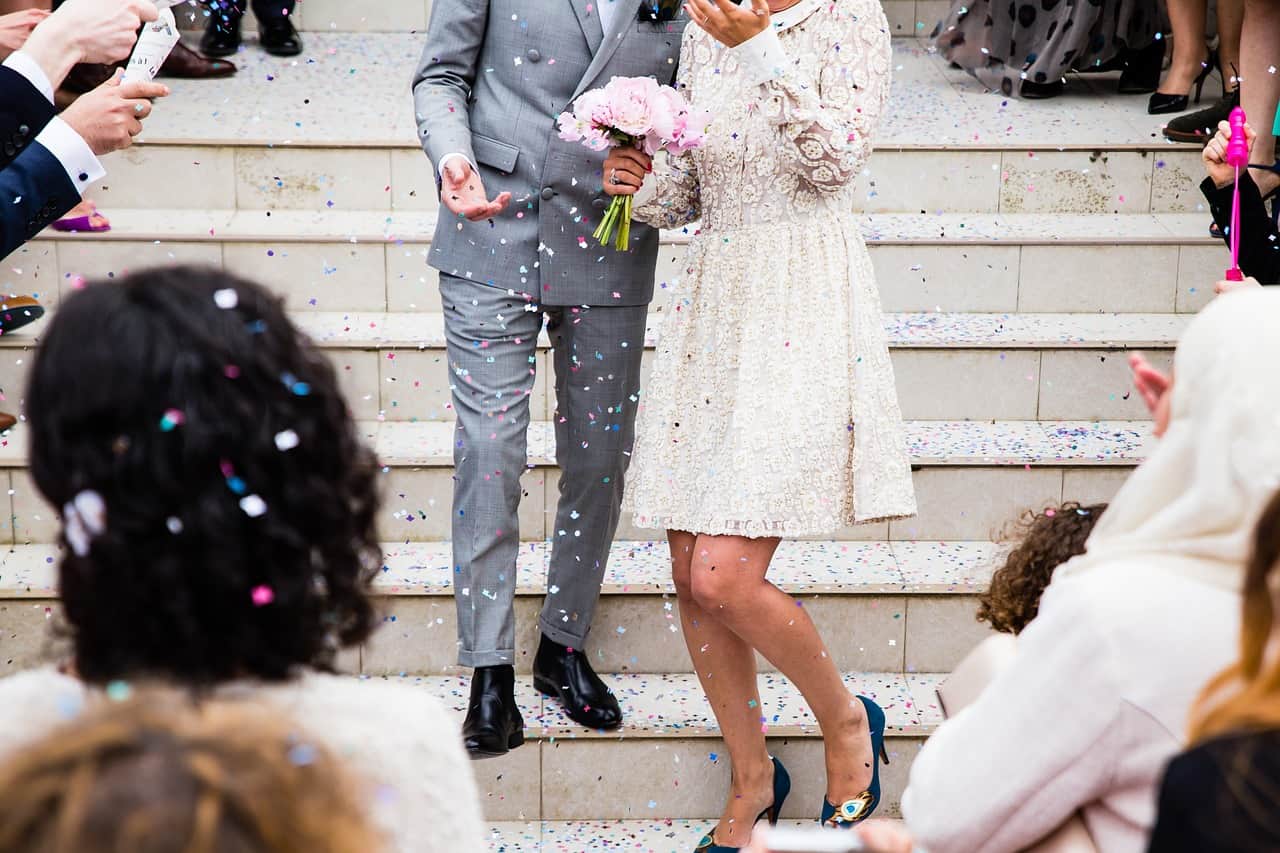Table of Contents
*This post may contain affiliate links. As an Amazon Associate we earn from qualifying purchases.
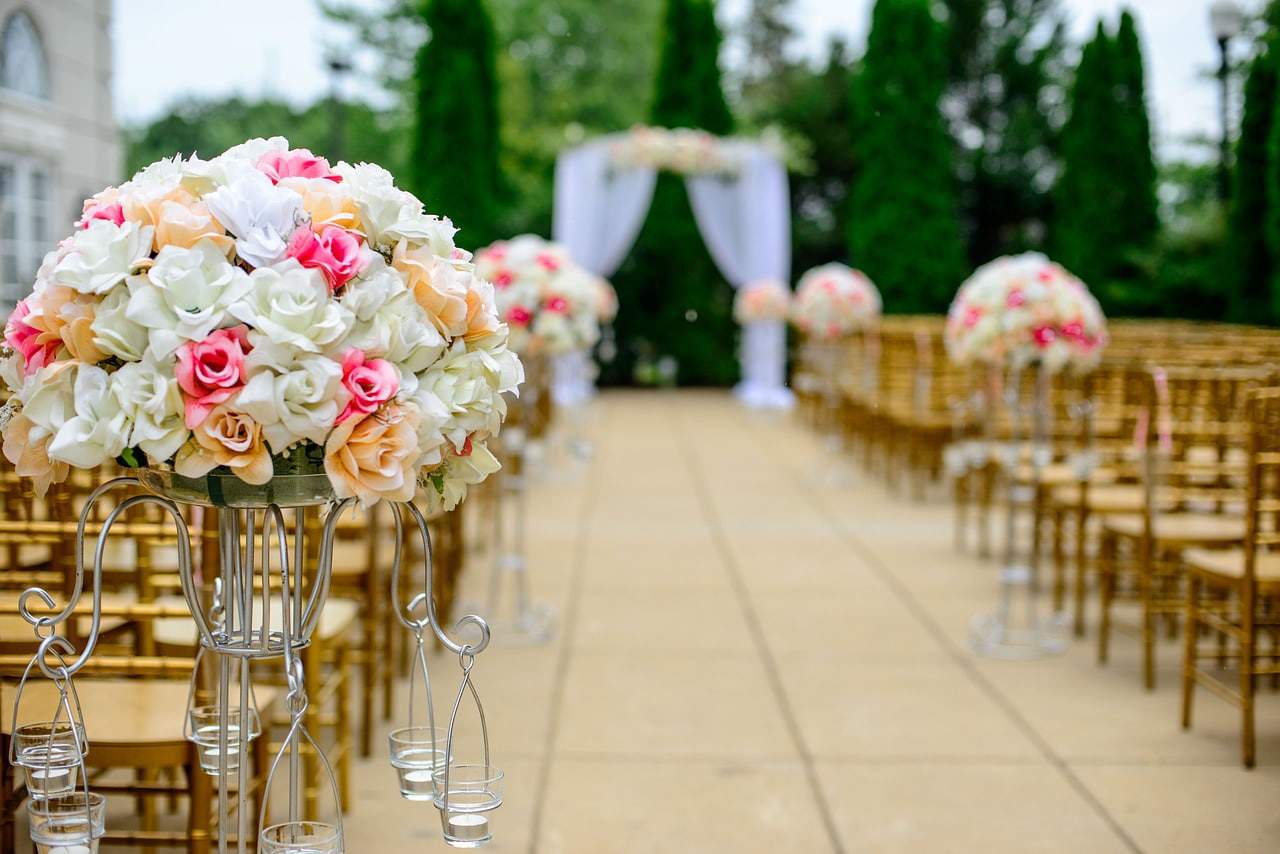
Image by Pixabay
So, one of your really good friends or relatives is getting married and they’ve asked you to be a part of this special day by officiating their wedding. If you have been asked to help make things official at a ceremony, keep reading. Below we are going to walk you through, step-by-step, how to officiate a wedding. We are also going to be discussing 10 helpful tips and things you should avoid on that fateful day. Everything you need to know is below; so, what are you waiting for? Keep scrolling!
Who Can Officiate A Wedding?
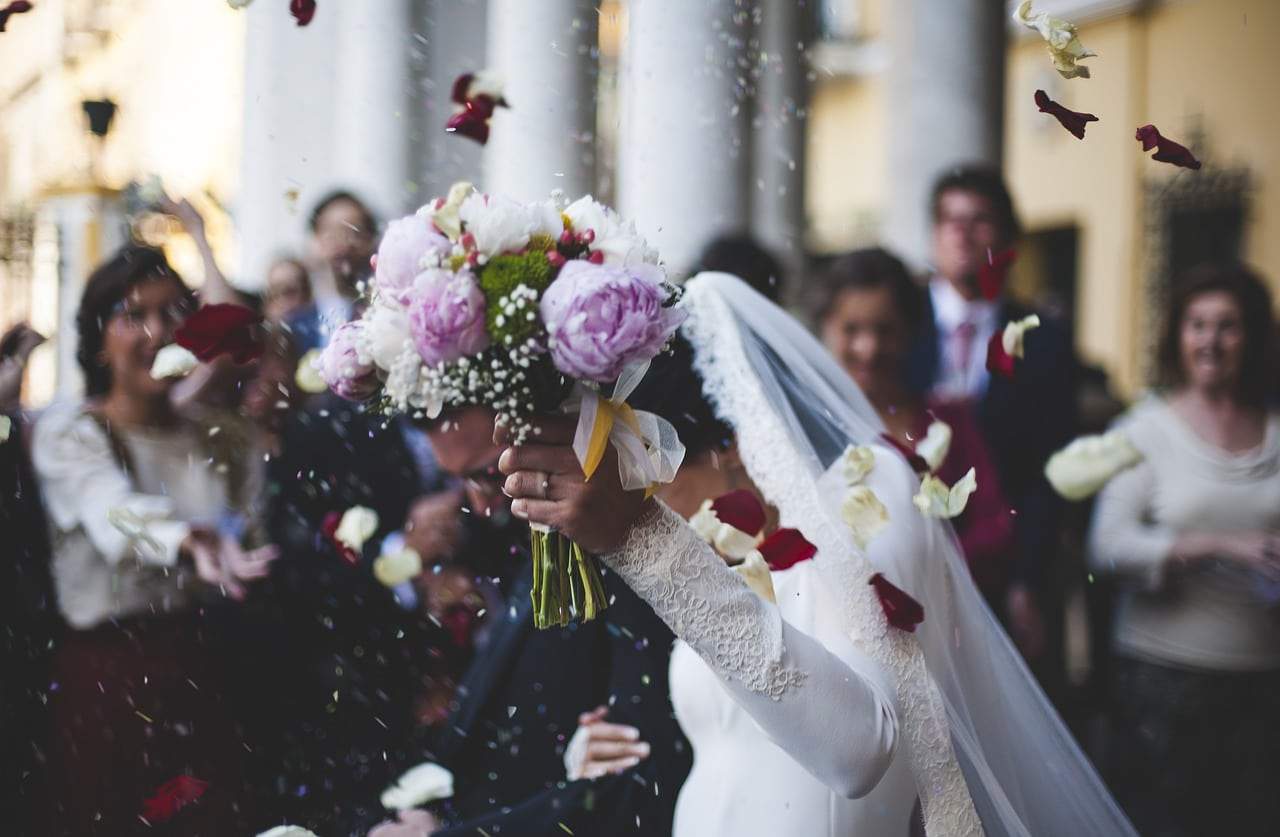
Before you start to learn the ins and outs of how to officiate a wedding, you’re probably going to want to know who can even officiate a wedding in the first place. The truth is, it varies by state here in the United States, and as such can be a little confusing. Keep reading for three of the most common types of people that can officiate a wedding:
Religious
Easily the most common officiant for a wedding is a religious figure. Weddings play a role in many religions, and as such it is common for officiants to be a member of a church. Religious officiants can include clergy, rabbi, priests, and ministers.
Civil
If religion doesn’t play a role in the bride and groom’s day-to-day life, it’s not uncommon to see weddings overseen by a civil officiant. A civil officiant means that the ceremony is performed by a civil servant which can include judges, court clerks, and more. If you’ve heard the term “courthouse wedding,” you can expect to have a civil officiant performing the marriage rites.
Other
If you’re reading this article, chances are you’re not a religious or civil figure. In today’s day and age, the idea of having someone close to you officiate your wedding is becoming more and more popular. In fact, you can get ordained online in a matter of minutes and be as official as a priest waiting for the “I do’s.”
Why Would Someone Want To Learn How To Officiate A Wedding?
Image by ANURAG1112 from Pixabay
You may be wondering why someone would want to learn how to officiate a wedding. The truth is, as we’ve touched on above, it’s an incredibly easy process that saves time and money. If couples opt for a religious officiant, it’s not uncommon for those figures to require the bride and groom to take a certain number of religious-based classes centered around marriage before they are allowed to wed. It’s also standard procedure for you to be a member of the church and religion that your potential officiant is a member of.Having a friend or family member officiate a wedding is a much simpler process than working with religious or civil figures. It’s also a great way to keep things intimate. After all, if a couple is having a small wedding, an added unknown religious or civil figure can easily alter the mood of a room. In just a few clicks, you’ll be helping out, saving time, and learning a thing or two yourself.
What Are The Steps For Officiating A Wedding?
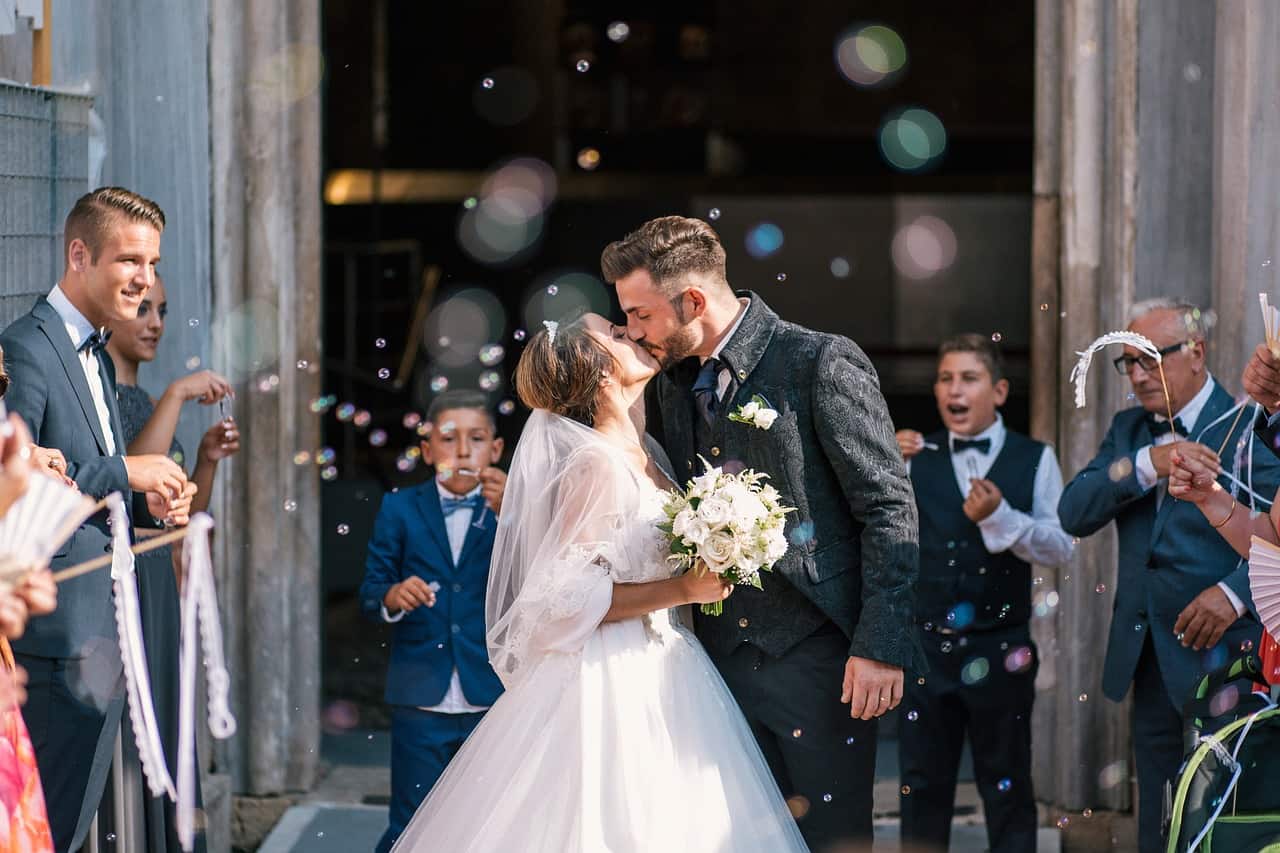
Image by Noemi-Italy from Pixabay
Now that you know a little more about officiants for weddings, we can get into the nitty-gritty, step-by-step tutorial on how to officiate a wedding. Keep in mind that every state’s laws on weddings and officiants are different, so be prepared to do a little outside reach in order to complete the process correctly. Keep reading for a standard and thorough walkthrough below:
Step One: Get Your License
As we learned above, unless you are a civil servant or a religious figure, you will need to get a license that allows you to legally officiate weddings in the location where the wedding will take place. Getting a license is easy and you can even do it online to save yourself time and money. That being said, keep in mind that every state is different and some locations, such as New York, require you to pay a fee in person at a designated courthouse as well as complete a course online in order to legally officiate a wedding in the state.
Step Two: Plan With The Bride And Groom
The next thing you will want to do is meet with the bride and groom. As we’ll discuss below, getting to know both parties will help you put together a ceremony that feels personable. After all, you don’t want to put in the time to create a funny script before you find out that the bride and groom want a serious and traditional ceremony.It’s also not a bad idea to get an idea of the tone of the ceremony and details that the bride and groom want you to include. This will ensure your script will be well received by all present and that you don’t have to go back to the drawing board too many times. Just make sure that your final script and ceremony schedule are approved before the big day to avoid any drama.
Step Three: Write The Ceremony
The next step to officially officiating a wedding is to write the ceremony. Some brides and grooms may already have the ceremony written and only need you to read it out loud or memorize it. Officiants for those couples are the lucky ones; for those of you that have to write the ceremony from scratch, you will want to take special care in the steps above. If you don’t have any direction from the bride or groom in terms of what to say, include, or avoid, start with the tone. Your tone of voice will help lead you into starting the script.Deciding whether you’ll be sincere, funny, philosophical, or traditional is a great place to start. You can also work with close friends and relatives to compile stories and traditions that would be welcomed in the ceremony. At the end of the day, as long as you double check it with the party getting married, you’ll have nothing to worry about when writing the ceremony.
Step Four: Arrive Early
One of the best things you can do when officiating a wedding is to arrive early on the big day. Arriving early ensures that you’re involved from start to finish. It’s not uncommon for timeframes to be moved, so it’s always a great idea to be available and flexible. This also gives you a chance to help out should there be any last minute issues. If this is your first time at a wedding, you should know that stand-ins happen all the time, especially around days and nights of celebration.
Step Five: Officiate And Sign
The last step to officiating a wedding is actually performing the ceremony and signing the marriage certificate. If you’ve followed all of our tips above, you should feel confident and prepared to deliver a great ceremony on this special day. Double check your appearance in a mirror and straighten your tie before heading out. As long as you remember to take a deep breath, take your time, and speak clearly as you address the crowd, you’ll have a great time participating in this momentous occasion.
10 Helpful Tips To Remember
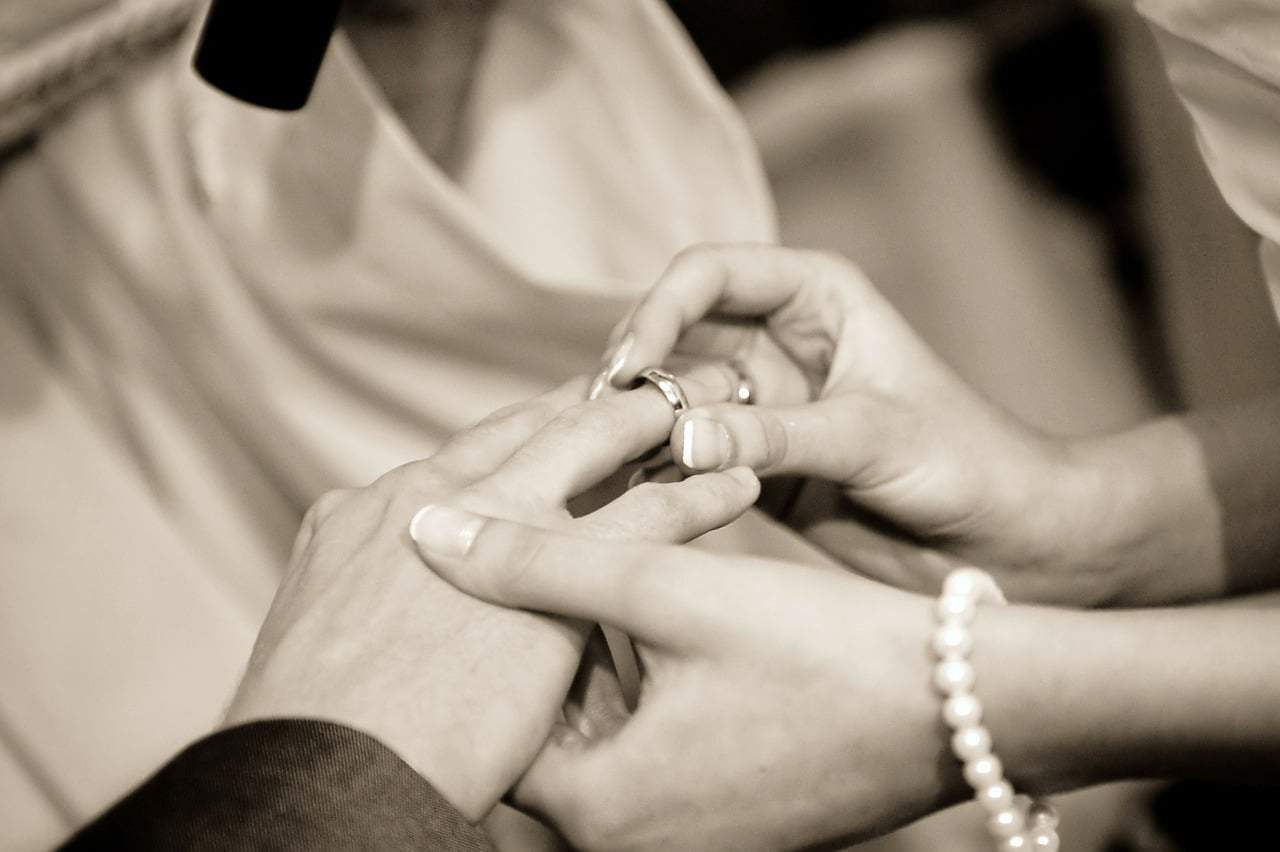
Now that you know the step-by-step tutorial of how to officiate a wedding the right way, you can move on to some helpful tips and reminders. Below we’ve put together 10 of the top tips you’ll want to keep in mind if you want a successful and stress-free experience officiating your first wedding. Avoid the extra drama and mishaps by heeding our advice below:
Tip One: Meet the Couple
The first tip you’ll want to remember when learning how to officiate a wedding is to meet the couple beforehand. You may already know one of the people getting married rather well; however, it’s always great to make the effort to get to know the spouse as well. Getting to know the bride and groom as a couple will be essential to you creating a ceremony and vows around their personal relationship.
Tip Two: Lead with Love
It can be tempting to create a ceremony that gets people laughing instead of crying. This is especially true for people officiating their friends’ weddings. Our biggest piece of advice is to always lead the ceremony with love. Marriage is such a sacred act that making jokes and turning the conversation too light may seem inappropriate. Take special note of the individuals attending the wedding; if your audience is more traditional, they’ll likely appreciate something more even toned.
Tip Three: Double Check
If you have been asked to write the ceremony or vows, double check everything before the special day. One of the best things you can do is run your script by the bride and groom or wedding coordinator before performing it. Sometimes another opinion is all you need to avoid a mistake or make something great!
Tip Four: Read It Out Loud
Before you perform your duties on that special day, one of the best tips we can give you is to read it out loud. Reading out loud is much different from reading in your head and the same is true for reading something alone versus in a crowd. Don’t be afraid to ask for your friends, loved ones, or even the bride and groom for a chance to practice reading your script out loud before the big day.
Tip Five: Speak Clearly
One of the ways you can ensure success when learning how to officiate a wedding is to speak clearly and loudly. Mumbling or talking too fast can easily ruin the moment not only for the bride and groom but for the guests involved as well. Take your time and enunciate to the best of your ability.
Tip Six: Don’t Be Nervous
For our next tip, we’d like to stress that you keep your nerves at bay. This may seem easier said than done; however, simple techniques like taking a deep breath and relaxing your shoulders can help keep nerves at bay. After all, you want to ensure you can speak clearly and confidently for such an important day.
Tip Seven: Write It Down
If you’ve been tasked with memorizing your script, you’ll want to write it down at least once. Writing something down can help commit it to memory. It also gives you a chance to objectively look at the entire script, which makes it easier to improve it and make unbiased changes.
Tip Eight: Be Helpful
Learning how to officiate a wedding for your friends or family is one of the nicest things you can do. That being said, it’s always nice to offer additional help throughout the day. Offering to help seat people or MC is a great way to be a big help.
Tip Nine: Stick Around
When you’re asked to learn how to officiate a wedding, you may be wondering whether or not you’re considered a traditional guest. More often than not, the officiant is welcome to join in the festivities after the ceremony. After you’ve played such an important and essential role in the day, the bride and groom will likely love it if you stayed throughout the festivities.
Tip Ten: Be Confident
If a bride or groom has asked you to be an officiant, you have all the reason in the world to be confident when delivering the ceremony. Hold your head high and know that you’re a vital part of this process. Without you, no would be able to legally get married, so lead with confidence as well as love!
Conclusion
Now that you know the ins and outs of how to officiate a wedding, you can begin to prepare with confidence. During this process, always do your best to keep in mind that this is a great honor your friends or family have bestowed you with. Some people even find that an officiant is a more sacred role in the marriage ceremony than the best man or groomsmen. No matter your involvement, be helpful and appreciative that you’re a part of such a life-changing day!

